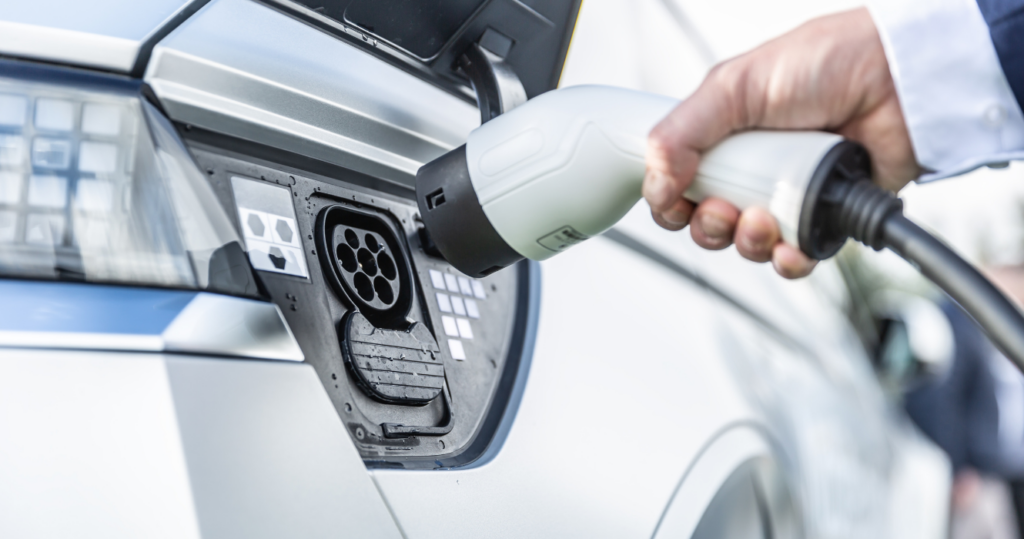Back in the early 2000s, if you said we’d have electric cars in the future, everyone would have laughed at you. You might as well tell them that the DeLorean will be possible in the future. However, now, we have not just electric cars, but cars that can run on both electricity and gas. But still, the question persists: Battery Electric Vehicles (BEVs) versus Hybrid Electric Vehicles (HEV), which is better?
Battery Electric Vehicles (BEVs)
Perhaps the most famous of its kind is the Tesla. In the late 2010s and early 2020s, everyone wants to have them, and everyone wants to ride them.
In today’s social media culture, people are more aware of our impact on the environment as humans. Hence, the growing popularity of BEVs like Tesla. More people are flocking to sustainable power. We are more aware of the dangers of using fossil fuels to power our vehicles. And Elon Musk didn’t disappoint.
The Tesla that we know today has more features like self-driving, road awareness, increased security connected to our phones, and many more. But the main hook of it all is using electricity to power our cars. I know and you know it too, it sounds cool! Like something that you’ve dreamt of as a teen. But let’s dive deeper into the pros and cons of electric vehicles.
Pros
The whole point of BEVs is reducing our fossil fuel emissions. Using gasoline for our cars does not only kill us but also our environment in the long run. With BEVs producing zero emissions, we can be kinder to our planet, and by extension, to ourselves.
Because BEVs don’t run on gas, it doesn’t have the same engine most cars have. This means less money spent on car maintenance and changing oil, and fixing parts of the engine on our part. So we’ll have fewer unpleasant interactions that cost an arm and a leg at the mechanic.
Lastly, electricity is so much cheaper than gas. Just the way of getting gas and fossil fuels, in general, is already extremely expensive, whereas electricity can be generated from a couple of natural resources like water, geothermal vents, and solar panels.
Cons
Of course, because BEVs are so new, there are bound to be many flaws. The main one is access to charging ports. When you are gearing up for a long drive, you need to check the areas you could recharge your vehicle first. You might run out of charge in the middle of nowhere, then where will you go?
In most undeveloped countries, for example, BEVs are very impractical. Charging stations are rare, if there are any, and chances are, you’ll have to charge your car in your home.
BEVs are still in development, and while they mostly carry a decent charge, it’s still not suitable for long drives if you are into cross-country traveling. So it’s a situation that you have to prepare for.
You’ll also have to compete with people to charge your vehicle if charging stations in your area are few and far between. You might not get a full charge this way.

Hybrid Electric Vehicles (HEVs)
The debate on Battery Electric Vehicles (BEVs) versus Hybrid Electric Vehicles (HEVs) was sparked mainly because well-known car manufacturers saw the hype with BEVs. And while creating their own BEVs could take years in the making, they settled for the closest thing, HEVs. Like BEVs, HEVs are all new technology that sees developments on a daily. So here are the pros and cons of getting it.
Pros
Although the use of fossil fuels is not entirely eliminated with HEVs, you’ll have fewer emissions than before. It’s a step towards caring for the environment on your part. It also allows for a more fuel-efficient drive, since you have a backup battery you can use.
The upside of HEVs is you can fuel up at traditional gas stations scattered all over the country, and all over the world. You won’t have to wait for your battery to be charged to go somewhere if you’re in a hurry.
In terms of price, HEVs are also a lot cheaper compared to BEVs since the engine is something the car companies have perfected, and they just added in the battery parts as a part of the car.
Cons
Unlike BEVs, most HEVs still rely on gas as their main power to keep the car running. This means you’ll have a shorter drive if you switch to battery mode. But of course, developments are made on this every day to allow for bigger batteries and longer charges.
The car maintenance costs are also significantly higher if you need something repaired. With HEVs being so new to the market, your trusted mechanics might take some time to figure out what’s wrong and how to fix it. You’ll also have to pay separate costs if something goes wrong with the engine connected to fuel and the parts connected to the battery.
Battery Electric Vehicles (BEVs) versus Hybrid Electric Vehicles (HEVs)
Which one wins? Well, it is ultimately up to you. Assess what you do with your vehicle and how often you use it. Check your area as well to see which is more suitable for your need. The question of Battery Electric Vehicles (BEVs) versus Hybrid Electric Vehicles (HEVs) can only be answered by you, the user.